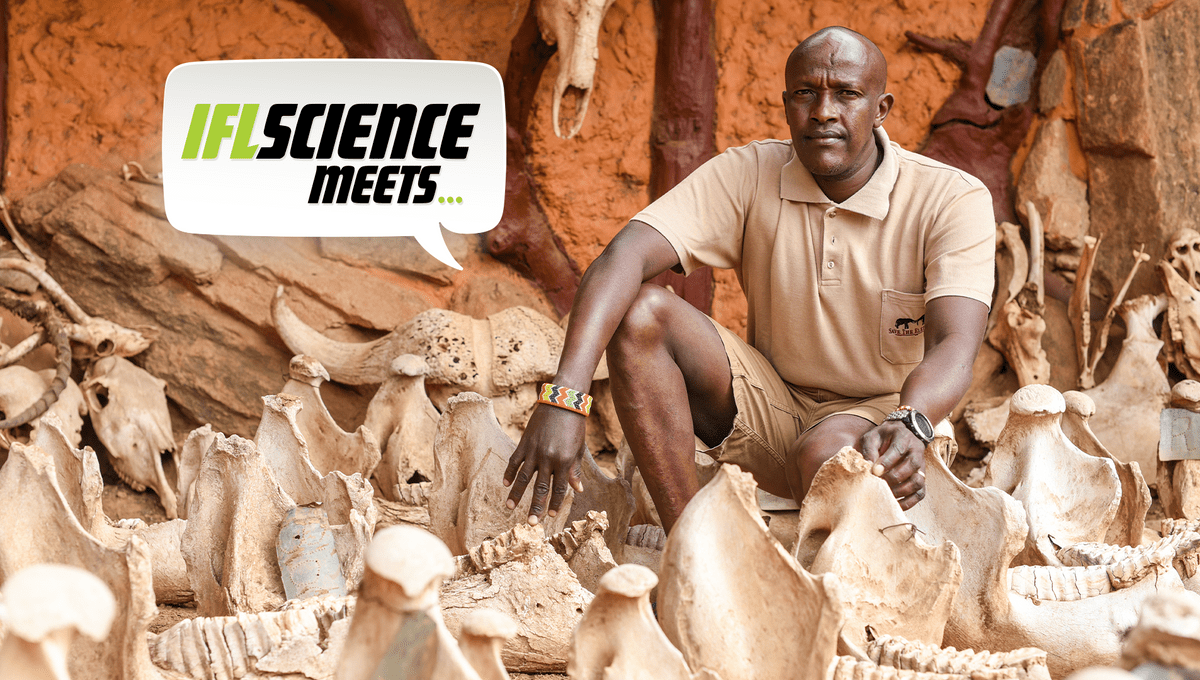
The shortlist for the prestigious Tusk Award for Conservation in Africa has welcomed finalist David Daballen, Samburu Operations Director at Save The Elephants, Kenya. Over the last two decades, he has been an ambassador and warrior for elephants, an endeavor that’s seen him wade into crocodile territory to keep sleepy trunks out of river water.
Daballen’s expertise in ecology and animal behavior stem from his Samburu culture and from his regular work alongside top international scientists, and he is described by those that work with him as knowledgeable and enthusiastic in everything he does.
“We have to carry the mantle to the next generation,” he said in a statement. “What really gives me hope is there are so many vibrant Kenyans interested in conservation coming up behind me. That is my driving force and my strength.”
We caught up with Daballen to find out more about his conservation work and how it feels to be a nominee for the Tusk Conservation Awards 2022.
How does it feel to be selected as a finalist?
I am humbled to be nominated for this prestigious conservation award.
What is the most important thing you’ve learned from your work in conservation?
Among the many things I’ve learnt is what an amazing bond wild animals share. As an outsider you would never think that animals have feelings, love, and compassion for each other, but they do! In my work, I have learnt so much about animal behaviour. That strong bond between animals is something that still amazes me every day.
What advice would you give to someone with a goal of working in a similar field?
My advice would be to prepare for a wonderful career but to be realistic. From the outside it looks like an easy job, but it’s not always the case, and people dedicated to the welfare of wild animals have to make a lot of sacrifices. There are many challenges, especially in today’s world, and one needs to be dedicated and passionate.
What changes do you hope to see in the conservation and management of wild animals in the future?
I would like to see a bottom-up approach towards the management of parks so that local communities who live with wildlife feel the impact of conservation and change their attitudes. Recognising and empowering community conservation accelerates conservation growth. Local communities are, after all, the custodians of their rich heritage and have lived side by side with wildlife for generations. I’d like to see a change in power dynamics so that conservation is community-led rather than the current top-down approach.
Any memorable stories from your time in the field?
I have led more than 200 collaring operations across Africa, but there is one in particular that sticks in my mind. In 2008, I had to hold the trunk of a huge and extremely aggressive bull elephant named Rommel, who had been darted [shot with a tranquiliser dart] so that we could deploy a GPS tracking collar on him. Rommel is famous in northern Kenya for attacking one of Save the Elephant’s monitoring vehicles in the field.
After he was darted, he walked quickly away from us, eventually going down in the middle of a crocodile-infested river. I had to wade into the river and hold Rommel’s twitching and extremely heavy trunk, otherwise he would have drowned. Several times during the collaring, he tried to wake up, so it was extremely scary, not just because of the elephant but also due to the crocodiles!
Despite this, it was a proud moment for me to be so close to this magnificent animal. When Rommel did eventually wake up, I dropped his trunk and ran for my dear life! Sadly the collaring operation was not successful due to the sheer size of his neck, which was too big to fit any collars around it. Still, it was an operation I will never forget!
The winner of the Tusk Award for Conservation in Africa will be announced during a ceremony at Hampton Court Palace on November 1, along with the recipient of the Prince William Award for Conservation and the Tusk Wildlife Ranger Award.
Source Link: IFLScience Meets: Ambassador For Elephants And Tusk Award Nominee David Daballen